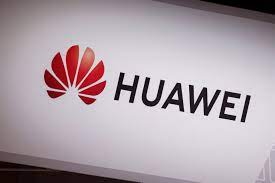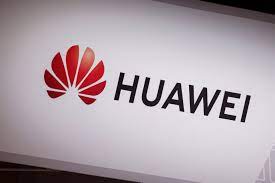
Analysts predict that as a result of U.S. efforts to restrict the sale of cutting-edge artificial intelligence (AI) processors to China, Huawei Technologies will have an opportunity to grow in its $7 billion home market if Nvidia is forced to back down.
With a market share of over 90%, Nvidia has long held the top spot in China for AI chips; however, Chinese companies, such as Huawei, have been creating their own iterations of Nvidia's best-selling chips, such as the A100 and H100 graphics processing units (GPU).
Analysts and certain AI companies, like China's iFlyTek, claim that Huawei's Ascend AI chips are on level with Nvidia's in terms of raw processing power, but they still perform worse.
The majority of projects' reliance on Nvidia's chips and software ecosystem, according to Jiang Yifan, chief market analyst at brokerage Guotai Junan Securities, is another significant barrier for Chinese companies, though this could alter as a result of US regulations.
"This U.S. move, in my opinion, is actually giving Huawei's Ascend chips a huge gift," Jiang said in a post on his social media Weibo account.
It is an opportunity, but it is not without its difficulties.
CUDA, a well-liked programming architecture that Nvidia invented, is used in many state-of-the-art AI projects. It has also led to the emergence of a vast worldwide ecosystem that can now train extremely complex AI models, such OpenAI's GPT-4.
Analysts claim that Huawei's version, known as CANN, is significantly less capable of training AI models than Nvidia, indicating that Huawei's chips are not a drop-in replacement for Nvidia.
According to Woz Ahmed, a former chip design executive who is now a consultant, Huawei needs to imitate Nvidia's ecosystem in order to lure Chinese customers away from the latter. This includes helping customers transfer their data and models to Huawei's own platform.
Since numerous American companies already own important GPU patents, intellectual property rights are another issue, according to Ahmed.
"To get something that's in the ballpark, it is 5 or 10 years," he added.
There were no comments on the issue from Huawei and Nvidia.
With Nvidia's market share under its belt, Huawei would be able to clinch yet another win over the US, which has been imposing export restrictions on the company since 2019.
In that same year, Huawei released the first Ascend GPUs. The business claims that all of its goods, including its Harmony operating system, are wholly domestic.
By revealing a cutting-edge smartphone chip and boasting about innovations in chip design tools, the telecom behemoth has demonstrated during the past year that it is retaliating against the restrictions in the United States.
With Chief Financial Officer Meng Wanzhou stating last month that Huawei intended to create a computer base for China and give the world a "second option," a subliminal allusion to dominating supplier the United States, the company has its sights set on becoming a major provider of computing power for artificial intelligence.
One of Huawei's current Chinese partners is iFlyTek, a well-known AI software provider that trains its AI models on the Ascend 910. In 2019, the US also placed IFlyTek on a blacklist.
Senior Vice President Jiang Tao stated that the Ascend 910B's capabilities were "comparable to Nvidia's A100" during iFlyTek's earnings call on Thursday. He also revealed that the company was working with Huawei to establish a general-purpose AI infrastructure in China.
"Our partnership now aims to enable domestically developed LLMs to be built with both homegrown hardware and software technology," Jiang said.
State-owned software companies Tsinghua Tongfang and Digital China are among the other partners. At a July conference, Huawei revealed that more than 30 large language models (LLM) in China—which is experiencing a generative AI boom and has over 130 LLMs at the moment—are now powered by its AI chips.
Nvidia's dominance in the ecosystem, according to 86Research analyst Charlie Chai, is not "an insurmountable obstacle if domestic players are given sufficient time and a big customer base".
This is probably made possible by China's drive towards self-sufficiency, which President Xi Jinping has supported. "In short, a small disruption to near-term supplies, but a big boost to the long-term self-sufficiency agenda," Chai stated.
(Source:www.theprint.in)
With a market share of over 90%, Nvidia has long held the top spot in China for AI chips; however, Chinese companies, such as Huawei, have been creating their own iterations of Nvidia's best-selling chips, such as the A100 and H100 graphics processing units (GPU).
Analysts and certain AI companies, like China's iFlyTek, claim that Huawei's Ascend AI chips are on level with Nvidia's in terms of raw processing power, but they still perform worse.
The majority of projects' reliance on Nvidia's chips and software ecosystem, according to Jiang Yifan, chief market analyst at brokerage Guotai Junan Securities, is another significant barrier for Chinese companies, though this could alter as a result of US regulations.
"This U.S. move, in my opinion, is actually giving Huawei's Ascend chips a huge gift," Jiang said in a post on his social media Weibo account.
It is an opportunity, but it is not without its difficulties.
CUDA, a well-liked programming architecture that Nvidia invented, is used in many state-of-the-art AI projects. It has also led to the emergence of a vast worldwide ecosystem that can now train extremely complex AI models, such OpenAI's GPT-4.
Analysts claim that Huawei's version, known as CANN, is significantly less capable of training AI models than Nvidia, indicating that Huawei's chips are not a drop-in replacement for Nvidia.
According to Woz Ahmed, a former chip design executive who is now a consultant, Huawei needs to imitate Nvidia's ecosystem in order to lure Chinese customers away from the latter. This includes helping customers transfer their data and models to Huawei's own platform.
Since numerous American companies already own important GPU patents, intellectual property rights are another issue, according to Ahmed.
"To get something that's in the ballpark, it is 5 or 10 years," he added.
There were no comments on the issue from Huawei and Nvidia.
With Nvidia's market share under its belt, Huawei would be able to clinch yet another win over the US, which has been imposing export restrictions on the company since 2019.
In that same year, Huawei released the first Ascend GPUs. The business claims that all of its goods, including its Harmony operating system, are wholly domestic.
By revealing a cutting-edge smartphone chip and boasting about innovations in chip design tools, the telecom behemoth has demonstrated during the past year that it is retaliating against the restrictions in the United States.
With Chief Financial Officer Meng Wanzhou stating last month that Huawei intended to create a computer base for China and give the world a "second option," a subliminal allusion to dominating supplier the United States, the company has its sights set on becoming a major provider of computing power for artificial intelligence.
One of Huawei's current Chinese partners is iFlyTek, a well-known AI software provider that trains its AI models on the Ascend 910. In 2019, the US also placed IFlyTek on a blacklist.
Senior Vice President Jiang Tao stated that the Ascend 910B's capabilities were "comparable to Nvidia's A100" during iFlyTek's earnings call on Thursday. He also revealed that the company was working with Huawei to establish a general-purpose AI infrastructure in China.
"Our partnership now aims to enable domestically developed LLMs to be built with both homegrown hardware and software technology," Jiang said.
State-owned software companies Tsinghua Tongfang and Digital China are among the other partners. At a July conference, Huawei revealed that more than 30 large language models (LLM) in China—which is experiencing a generative AI boom and has over 130 LLMs at the moment—are now powered by its AI chips.
Nvidia's dominance in the ecosystem, according to 86Research analyst Charlie Chai, is not "an insurmountable obstacle if domestic players are given sufficient time and a big customer base".
This is probably made possible by China's drive towards self-sufficiency, which President Xi Jinping has supported. "In short, a small disruption to near-term supplies, but a big boost to the long-term self-sufficiency agenda," Chai stated.
(Source:www.theprint.in)














